

![]()
![]()
![]()
 |
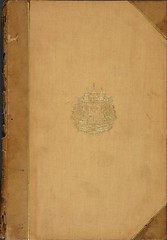
|

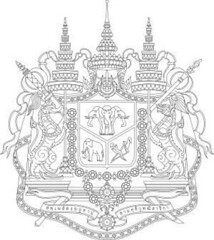 |



Map of the Maurya Empire under Ashoka’s rule.
the Mauryan empire, bear Buddhist symbols such as the Dharmacakra,
the elephant (previous form of the Buddha), the tree under which
enlightenment happened, and the burial mound where the Buddha died
(obverse). 3rd century BC.
http://www.youtube.com/watch?v=AaiB3pXY-ss&mode=related&search=

Make me PM
Write Down on the Wall was Dr. Ambedkar’s Sign !
Two Thousand Nine !
Will Be Mine !
Now is all that you have!
By voting to BSP, the Nation you save!
Bahujan Samaj Party (BSP) supremo and UttarPradesh Chief Minister Mayawati today said the UPA government can’t
escape from its responsibilities on terrorist attacks in Mumbai, by
resignation of Union Home Minister Shivraj Patil only …
Polling for Rajasthan assembly
Jaipur, Dec 4 (IANS) Polling to elect a 200-seat
Rajasthan assembly began Thursday morning amid tight vigil by policemen
following heightened security concerns in the wake of the Mumbai terror
attacks.
“The voting began at 8 a.m. at 42,212 polling
stations spread across the state. We have made elaborate security
arrangements for peaceful polls,” an election official here told IANS.
Over 8,400 polling stations have been declared sensitive and security has been beefed up in these areas.
Over 36 million people, including 17.2 million women, are eligible
to vote. There are 2,193 candidates, including 154 women, in the fray.
The Bahujan Samaj Party (BSP) is fighting 199 seats.
Uttar Pradesh Chief Minister Mayawati’s BSP has made a
dent. The party had won only two of the 124 assembly seats it contested
in 2003. However, it increased its vote percentage from 2.17 percent in
1998, when it fought for the first time in the state, to 3.98 percent
in 2003. As per Three Baskets Study circle BSP will win more than 100 seats.
Young MPs respond to the Mumbai Tragedy-Ashok Kumar Rawat, MP
Ashok Kumar Rawat, MP
Misrikh, Uttar Pradesh
Bahujan Samaj Party (BSP)
This is serious political crisis. We should stand above our petty party considerations.
The
kind of coverage the media was providing was against the security
operation and safety of the people. Indeed, the media is right to
highlight the irresponsible remarks of one or two politicians, but at
the same time the media should also try to report the cooperation of
other people and the steps taken by the government, like the
resignations of ministers.
It is democracy which gives people
the choice to select and vote for the right leaders. It is easy to
blame the system, but there is a very low percentage of voting in our
country – only 50-60 percent. Politicians are not from outside society; they come from the same backgrounds as the ordinary people.
The need of the hour is to develop a broad consensus on political,
civil society and media level. There must be mandatory induction of all
citizens in certain military training.
|
|||||
The Stone Sliver
Translator’s note: Cullavagga
VII tells of how Devadatta, the Buddha’s cousin, tried unsuccessfully
in various ways to wrest leadership of the Sangha from the Buddha. In
Cv VII.3.9, he tries to kill the Buddha by hurling a rock down a
mountainside. The rock is crushed, and so misses the Buddha, but sends
out a splinter that pierces the Buddha’s foot, drawing blood. According
to the Commentary, this discourse together with SN 4.13 describe the Buddha’s reaction to this attempt on his life.
I have heard that on one occasion the Blessed One was staying near Rajagaha at the Maddakucchi Deer Reserve.
Now at that time his foot had been pierced by a stone sliver.
Excruciating were the bodily feelings that developed within him —
painful, fierce, sharp, wracking, repellent, disagreeable — but he
endured them mindful, alert, & unperturbed. Having had his outer
robe folded in four and laid out, he lay down on his right side in the
lion’s posture, with one foot placed on top of the other, mindful &
alert.
Then 700 devatas from the Satullapa
retinue, in the far extreme of the night, their extreme radiance
lighting up the entirety of Maddakucchi, went to the Blessed One. On
arrival, having bowed down to him, they stood to one side.
As she was standing there, one of the devatas exclaimed in the
Blessed One’s presence: “What a naga is Gotama the contemplative! And
like a naga, when bodily feelings have arisen — painful, fierce, sharp,
wracking, repellent, disagreeable — he endures them mindful, alert,
& unperturbed!”
Then another devata exclaimed in the Blessed One’s presence: “What a
lion is Gotama the contemplative! And like a lion, when bodily feelings
have arisen — painful, fierce, sharp, wracking, repellent, disagreeable
— he endures them mindful, alert, & unperturbed!”
Then another devata exclaimed in the Blessed One’s presence: “What a
thoroughbred is Gotama the contemplative! And like a thoroughbred, when
bodily feelings have arisen — painful, fierce, sharp, wracking,
repellent, disagreeable — he endures them mindful, alert, &
unperturbed!”
Then another devata exclaimed in the Blessed One’s presence: “What a peerless bull
is Gotama the contemplative! And like a peerless bull, when bodily
feelings have arisen — painful, fierce, sharp, wracking, repellent,
disagreeable — he endures them mindful, alert, & unperturbed!”
Then another devata exclaimed in the Blessed One’s presence: “What a
strong burden-carrier is Gotama the contemplative! And like a strong
burden-carrier, when bodily feelings have arisen — painful, fierce,
sharp, wracking, repellent, disagreeable — he endures them mindful,
alert, & unperturbed!”
Then another devata exclaimed in the Blessed One’s presence: “What a
tamed one is Gotama the contemplative! And like a tamed one, when
bodily feelings have arisen — painful, fierce, sharp, wracking,
repellent, disagreeable — he endures them mindful, alert, &
unperturbed!”
Then another devata exclaimed in the Blessed One’s presence: “See a
concentration well-developed, a mind well-released — neither pressed
down nor forced back, nor with mental fabrication kept blocked or
suppressed. Whoever would think that such a naga of a man, lion of a
man, thoroughbred of a man, peerless bull of a man, strong
burden-carrier of a man, such a tamed man should be violated: what else
is that if not blindness?”
Five-Veda Brahmans,
living austerely
for 100 years:
Their minds
are not rightly released.
Lowly by nature,
they’ve not gone beyond.
Overpowered by craving,
bound up in precepts & practices,
performing wretched austerities
for 100 years:
Their minds
are not rightly released.
Lowly by nature,
they’ve not gone beyond.
For one fond of conceit,
there’s no taming;
for one uncentered,
no sagacity.
Though alone in the wilderness,
if one lives heedlessly,
one won’t cross over, beyond Mara’s sway.
But having abandoned conceit,
well-centered within,
with right awareness
everywhere
fully released,
alone in the wilderness,
heedfully living,
one will cross over, beyond Mara’s sway.
The Great Section on Virtue
“Whereas some
priests and contemplatives, living off food given in faith, maintain
themselves by wrong livelihood, by such lowly arts as:
reading marks on the
limbs [e.g., palmistry];
reading omens and signs;
interpreting celestial events [falling stars, comets];
interpreting dreams;
reading marks on the body [e.g., phrenology];
reading marks on cloth gnawed by mice;
offering fire oblations, oblations from a ladle, oblations of husks, rice
powder, rice grains, ghee, and oil;
offering oblations from the mouth;
offering blood-sacrifices;
making predictions based on the fingertips;
geomancy;
laying demons in a cemetery;
placing spells on spirits;
reciting house-protection charms;
snake charming, poison-lore, scorpion-lore, rat-lore, bird-lore, crow-lore;
fortune-telling based on visions;
giving protective charms;
interpreting the calls of birds and animals —
he abstains from wrong livelihood,
from lowly arts such as these.
“Whereas some priests and
contemplatives, living off food given in faith, maintain themselves by wrong
livelihood, by such lowly arts as: determining lucky and unlucky gems,
garments, staffs, swords, spears, arrows, bows, and other weapons; women, boys,
girls, male slaves, female slaves; elephants, horses, buffaloes, bulls, cows,
goats, rams, fowl, quails, lizards, long-eared rodents, tortoises, and other
animals — he abstains from wrong livelihood, from lowly arts such as these.
“Whereas some priests and
contemplatives, living off food given in faith, maintain themselves by wrong
livelihood, by such lowly arts as forecasting:
the rulers will march
forth;
the rulers will march forth and return;
our rulers will attack, and their rulers will retreat;
their rulers will attack, and our rulers will retreat;
there will be triumph for our rulers and defeat for their rulers;
there will be triumph for their rulers and defeat for our rulers;
thus there will be triumph, thus there will be defeat —
he abstains from wrong livelihood,
from lowly arts such as these.
“Whereas some priests and
contemplatives, living off food given in faith, maintain themselves by wrong
livelihood, by such lowly arts as forecasting:
there will be a lunar
eclipse;
there will be a solar eclipse;
there will be an occultation of an asterism;
the sun and moon will go their normal courses;
the sun and moon will go astray;
the asterisms will go their normal courses;
the asterisms will go astray;
there will be a meteor shower;
there will be a darkening of the sky;
there will be an earthquake;
there will be thunder coming from a clear sky;
there will be a rising, a setting, a darkening, a brightening of the sun, moon,
and asterisms;
such will be the result of the lunar eclipse… the rising, setting, darkening,
brightening of the sun, moon, and asterisms —
he abstains from wrong livelihood,
from lowly arts such as these.
“Whereas some priests and contemplatives,
living off food given in faith, maintain themselves by wrong livelihood, by
such lowly arts as forecasting:
there will be
abundant rain; there will be a drought;
there will be plenty; there will be famine;
there will be rest and security; there will be danger;
there will be disease; there will be freedom from disease;
or they earn their living by counting, accounting, calculation, composing
poetry, or teaching hedonistic arts and doctrines —
he abstains from wrong livelihood,
from lowly arts such as these.
“Whereas some priests and
contemplatives, living off food given in faith, maintain themselves by wrong
livelihood, by such lowly arts as:
calculating
auspicious dates for marriages, betrothals, divorces; for collecting debts or
making investments and loans; for being attractive or unattractive; curing
women who have undergone miscarriages or abortions;
reciting spells to bind a man’s tongue, to paralyze his jaws, to make him lose
control over his hands, or to bring on deafness;
getting oracular answers to questions addressed to a mirror, to a young girl,
or to a spirit medium;
worshipping the sun, worshipping the Great Brahma, bringing
forth flames from the mouth, invoking the goddess of luck —
he abstains from wrong livelihood,
from lowly arts such as these.
“Whereas some priests and
contemplatives, living off food given in faith, maintain themselves by wrong
livelihood, by such lowly arts as:
promising gifts to
devas in return for favors; fulfilling such promises;
demonology;
teaching house-protection spells;
inducing virility and impotence;
consecrating sites for construction;
giving ceremonial mouthwashes and ceremonial bathing;
offering sacrificial fires;
preparing emetics, purgatives, expectorants, diuretics, headache cures;
preparing ear-oil, eye-drops, oil for treatment through the nose, collyrium,
and counter-medicines; curing cataracts, practicing surgery, practicing as a
children’s doctor, administering medicines and treatments to cure their
after-effects —
he abstains from wrong livelihood,
from lowly arts such as these. This, too, is part of his virtue.
“A monk thus consummate in
virtue sees no danger anywhere from his restraint through virtue. Just
as a head-anointed noble warrior king who has defeated his enemies sees no
danger anywhere from his enemies, in the same way the monk thus consummate in
virtue sees no danger anywhere from his restraint through virtue. Endowed with
this noble aggregate of virtue, he is inwardly sensitive to the pleasure of
being blameless. This is how a monk is consummate in virtue.
I-G (security) for Mayawati
Special Correspondent
LUCKNOW: A new post of I-G (CM Security) has been created
exclusively for supervising the security set-up of Uttar Pradesh Chief
Minister Mayawati who is one of the few politicians in the country with
a Z-Plus security cover.
I-G (Lucknow Zone) Arvind Kumar Jain will double up as I-G (CM
Security). Besides these twin responsibilities, Mr. Jain has been given
the additional charge of I-G (Lucknow Zone) of the Anti-Terrorist Squad
(ATS). The UP ATS was split into four zones by the Chief Minister on
Tuesday with the Lucknow and Kanpur zones under the supervisory charge
of officers of I-G rank.
In a late Tuesday night reshuffle, I-G (ATS) S.N. Singh was shifted
as I-G (PAC), Central Zone. Mr. Singh has been given the additional
charge of I-G (Kanpur Zone) of ATS. DIG (PAC) Lucknow Sector, Rajiv
Krishna, will hold the additional charge of DIG, Faizabad Zone of ATS,
while Ajay Anand has been appointed DIG, ATS Zone, Allahabad.
Rajiv Sabbarwal, who was SSP, ATS, in Lucknow, has been moved as
SSP, ATS, Allahabad Zone, and the Commandant of 35 PAC Battalion,
Lucknow, Alok Singh has been assigned the additional responsibility of
SSP, ATS Zone, Lucknow.
Mohammed Iqbal
JAIPUR: The stage is set for high-profile contests here today as the
Pink City goes to the polls along with the rest of the State.
in the district, the number of seats has gone up from 15 to 19. Rajasthan polls today; BJP unsure, Congress too
There is an element of unpredictability about the current election as
it is the first taking place after the massive exercise of delimitation
in which as many as 188 constituencies underwent changes. There are
also changes in the reserved constituencies whose total number now
comes to 59 — 34 for Scheduled Castes and 25 for Scheduled Tribes. The
new additions and deletions in areas have not only changed the proven
political/voting patterns in the constituencies but also brought in new
claimants for representing them.
The BSP has 199 nominees

Poll issues are “corruption and mis-governance by the Vasundhara Raje Government”.
The serious administrative lapses which took place during the Raje
regime, including the firing on farmers agitating for irrigation water
in Sriganganagar and at Sohela in Tonk district and the killing of as
many as 70 Gujjars during their agitation for Scheduled Tribe status,
are some of the issues where the BJP was left without defence. The poor
administrative responses to calamities — the latest being the Chamunda
Mata temple stampede which claimed 214 lives in Jodhpur in September –
added to the negative factor.
The serious administrative lapses which took place during the Raje
regime, including the firing on farmers agitating for irrigation water
in Sriganganagar and at Sohela in Tonk district and the killing of as
many as 70 Gujjars during their agitation for Scheduled Tribe status,
are some of the issues where the BJP was left without defence. The poor
administrative responses to calamities — the latest being the Chamunda
Mata temple stampede which claimed 214 lives in Jodhpur in September –
added to the negative factor.
The fact that the party denied tickets to as many as 61 of its
sitting MLAs including Ministers — some of whom are fighting as rebels
now — and also it had to field four of its MPs in the Assembly
elections, only gave away its back-against-the-wall position.
The Raje package came for the party with its extra baggage of
corruption charges — including those levelled against her by the
party’s own senior men.
The Raje-centric character of the BJP campaign made senior BJP
leaders, including Jaswant Singh, former State party chief Lalit
Kishore Chaturvedi and former Deputy Chief Minister Harishankar Bhabra
– not to speak of Kailash Meghwal, BJP vice-president who levelled the
charge of large-scale corruption against Ms.Raje — keep away from the
campaign. The stand of the Sangh Parivar organisations too was not very
helpful with RSS encouraging candidates against official BJP nominees
in some places.
A day before the polling, indications are that the BJP is bound to lose a good number of its current seats.
The BSP is poised to gain additional seats in all the regions –
Marwar, Mewar, Hadauti, Shekahwati, Bikaner, Wagad, Braj and Dhundhar
– and the gains would be enough for it
to pass muster — the 100-seat mark.
Rustic touch: Kite-flying, bullock cart races and more at ‘Rural Olympics’!
What’s more, winners will not be given medals or trophies “The stage is set. The four-day Rural Olympics that The UPNOA is involved with the promotion of ancient, traditional and cultural games. The The Rural Olympics will draw participants not only from Uttar Pradesh but also from Haryana, West Bengal and Tamil Nadu. “Our “Last year too we had organised sporting events for the villagers. But this is for the first time we are doing it in a big way.” The Rural Olympics will be held in the Gomti Nagar stadium in the Chinhat area here. “The There And there “Considering this, Cash prizes would also be given to some select winners. “If UPNOA
where you can see some pulse-racing bullock cart races, gulli danda,
kite-flying and other traditional Indian games? At the first-ever
homegrown ‘Rural Olympics’ being organised in Uttar Pradesh later this
month.
but awards that can be useful to them every day like loads of ghee and
cooking oil!
will tap hidden talent in the villages will start here Dec 18,” AK
Saxena, general secretary of the Uttar Pradesh Non-Olympic Association
(UPNOA), said.
intention behind organising the Rural Olympics is to “revive the host
of traditional and indigenous games that have lost their importance to
modern-day glamorous games for one reason or other”, said a UPNOA
member.
counterparts based in Haryana and West Bengal have already confirmed
their participation. Taking this into account, we expect as many as
1,000 participants to converge here for the event,” said Saxena.
Rural Olympics will have games for everyone - children, youth, men and
women. The games have been selected in such a way that there can be
maximum representation for a particular game,” said Saxena.
will be as many as 40 different games, including tug-of-war, stone
throwing, rope-skipping, kite-flying, half-marathon and filling buckets
with water drawn from wells within a stipulated time.
will be no trophies and medals as these may not hold much importance
for rural participants, said UPNOA members, adding villagers want to
get rewarded with items they can use daily.
we will give items like containers of ghee, packets of cooking oil,
blankets, clothes, stock of cereals and several such items that don’t
have to be kept as showpieces in there homes,” said Saxena.
games like kabaddi, kho-kho and wrestling (called dangal in Hindi) that
have their roots in villages can be accepted nationally, we will strive
for national acceptance of other rural games as well.”
members said the state government was not contributing anything for the
event and it was being organised with the help of funds raised by its
members.
Mind in its passive and active forms
The mind occurs in both passive and active modes. The passive gives
way to the active when a stimulus is received through one of the sense
doors. The passive state of mind is called bhava”nga, cuti, or paa.tisandhi, according to the occasion.
Bhava”nga. The bhava”nga citta, mentioned earlier, is the
primary form of mind. It flows from conception to death except when
interrupted by a stimulus through one of the sense doors. When a
stimulus enters, consciousness becomes active, launching into a thought
process (citta viithi). Thought processes have been analyzed in great detail in the Abhidhamma.
A complete thought process, occurring through the physical sense doors, is made up of seventeen thought moments (citta kha.na). These are:
- A bhava”nga that flows by in a passive state when one of the five physical sense organs comes in contact with its object (atiita bhava”nga).
- A bhava”nga that vibrates for one thought moment (bhava”nga calana).
- A bhava”nga that cuts off the flow (bhava”nga upaccheda).
- A citta that turns towards the object through the sense door that has been stimulated (pañcadvaara-vajjana).
- The appropriate sense consciousness; in the case of the eye, for example, eye consciousness (cakkhu viññaa.na).
- Next a thought moment — the sampa.ticchana citta — which has the function of receiving the object.
- When the object has been received another thought moment, called the santiirana citta, arises, performing the function of investigating the object.
- The act (kamma) itself, especially if it was a weighty one.
- 9 to 15.
- The object having been determined, the most important stage from an ethical standpoint follows. This stage, called javana,
consists of seven consecutive thought moments all having an identical
nature. It is at this stage that good or evil is done, depending on
whether the cittas have wholesome or unwholesome roots. Therefore,
these javana thought moments have roots and also produce new kamma. - 16 and 17.
- Following the seventh javana the registering stage occurs, composed of two thought moments called tadaalambane.
When the second registering citta has perished, the bhava”nga follows,
flowing on until interrupted by another thought process.
These thought moments follow one another in extremely rapid
succession; each depends on the previous one and all share the same
object. There is no self or soul directing this process. The process
occurs so rapidly that mindfulness has to be alert and brisk to
recognize at least the determining thought moment — the vottapana — so that one can govern the javana thought moments by wholesome volition.
When the mind-door receives a mind-object, the sequence of events is
a little different from that occurring through the physical senses. The
mind-door-adverting citta is the same type of citta as the determining
moment — the votthapana — that arises in a sensory process. This
mind-door-adverting thought moment can cognize an object previously
seen, heard, smelt, tasted or touched, thus making memories possible.
Since the mind-object here has already been received and investigated,
these functions need not be performed again and the mind-door-adverting
thought moment gives way immediately to the javanas. These are, again,
of great ethical significance. For example, unpleasant words previously
heard can suddenly come to mind and, unless proper mindfulness (sammaa sati) is practiced, call up javana cittas rooted in hatred, i.e., unwholesome kamma.
Lesson 10
1. Utthana Sampada
The Buddha when encouraging the production of wealth makes special
reference to six job ranges prevalent at that time:
1. Agriculture
2. Trade
3. Cattle breeding
4. Defence services
5. Government services
6. Professional services
in the discourses were made to agriculture. For example in the ‘Sadapunnappavaddhana
Sutta’ it is mentioned that providing of irrigation facilities results in
yielding continuous merit. In the ‘Samyutta Nikaya’ it is mentioned that
the greatest asset for agriculture is cattle, while in the Sutta Nipatha cattle
from whom man obtains milk, ghee, curd, butter and whey, of much nutritious
value, are described as the best friends of a country. In developing countries,
water and draught power provided by cattle, are basic needs for agriculture.
In the discourse pertaining to a layman’s happiness (domestic and
otherwise) (Cahapati Sukha), foremost is mentioned the satisfaction
derived by a layman from the possession of wealth obtained through righteous
means. (Atthi Sukka). However, the Buddha warns man against the tendency
to become a slave to the mere accumulation of wealth for its own sake. Ibis
would lead to both physical and mental suffering later. Adequate means of
livelihood to support oneself and family, to help relatives and friends, and to
distribute among the needy and the deserving, would lead to contentment and
inner satisfaction. This in turn would result in the moral and spiritual
development of man.
In the ‘Kutadanta Sutta’ the Buddha shows how peace and
prosperity and freedom from crime comes to a country through the
equitable distribution of wealth among its people.
He says: ‘Long ago, 0 Brahman, there was a king by name Wide-realm (Maha-Vijita),
mighty with great wealth and large property with stores of silver and gold,
of aids to enjoyment, of goods and corn; with his treasure houses and his
garners full. Now when Ying Wide-realm was once sitting alone in meditation he
became anxious at the thought: I have in abundance all the good things a mortal
can enjoy. The whole wide circle of the earth. is mine by conquest to possess.
“Twere well if I were to offer a great sacrifice that should ensure me
weal and welfare for many days.”
And he had the Brahman, his chaplain, called; and telling him all
that he had thought, he said: “So I would fain, 0 Brahman, offer a great
sacrifice - let the venerable one instruct me how - for my weal and my welfare
for many days.”
Thereupon the Brahman who was chaplain said to the king: ‘The
king’s country, Sire, is harassed and harried. There are dacoits abroad who
pillage the villages and townships, and who make the roads unsafe. Were the
king, so long as that is so, to levy a fresh tax, verily his majesty would be
acting wrongly. But perchance his majesty might think: I will soon put a stop
to these scoundrels’ game by degradation and banishment, and fines and bonds
and death! But their licence cannot be satisfactorily put a stop to do so. The
remnant left unpunished would still go on harassing the realm. Now there is one
method to adopt to put a thorough end to this disorder. Whosoever, there be in
the king’s realm who devote themselves to keeping cattle and the farm, to them
let his majesty the king give food and seed corn. Whosoever, there be in the
king’s realm who devote themselves to trade, to them let his majesty the king
give wages and food. Then those men, following each his own business, will no
longer harass the realm; the king’s revenue will go up; the country will be
quiet and at peace; and the populace, pleased one with another and happy,
dancing their children in their arms, will dwell with open doors.”
The King Wide-realm, 0 Brahman, accepted the word of his chaplain,
and did as he had said. And the men, following their business, harassed the
realm no n-tore. And the king’s revenue went up. And the country became quiet
and at peace. And the populace, pleased one with another and happy, dancing
their children in their arms, dwelt with open doors.
So King Wide-realm had his chaplain called, and said: The disorder
is at an end. The country is at peace. (Dialogues of the Buddha - Part
I, pp. 175-6).













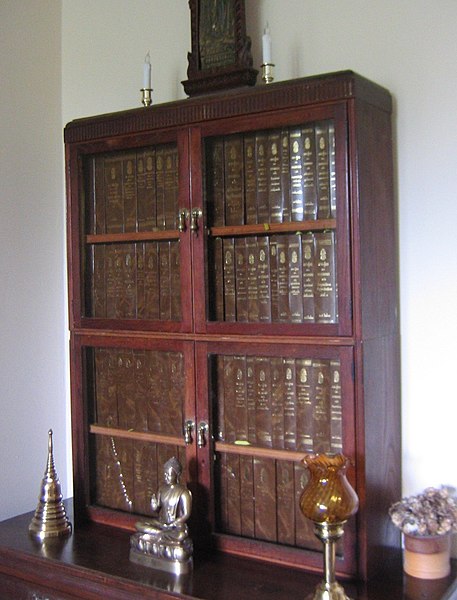
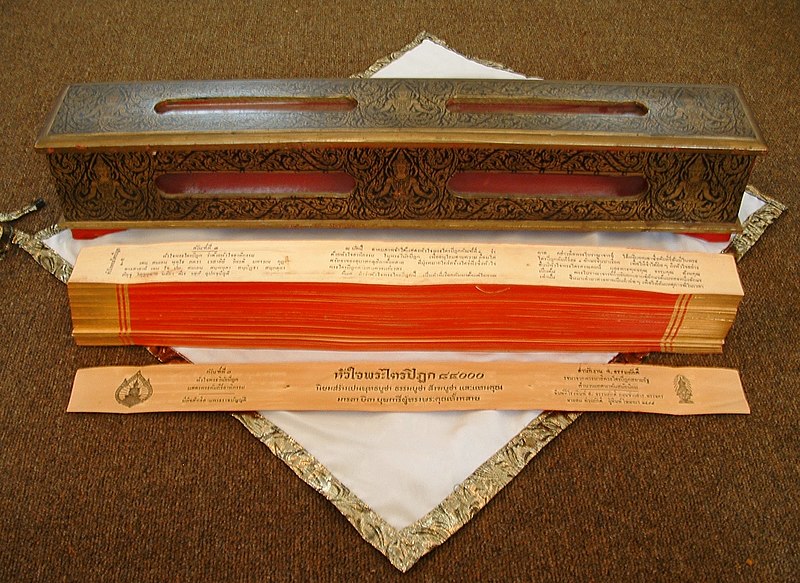

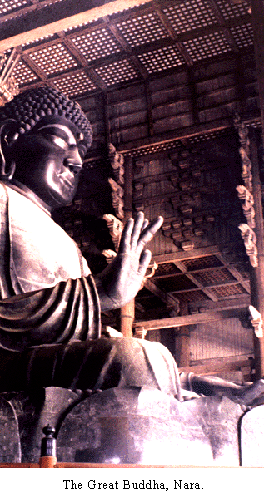





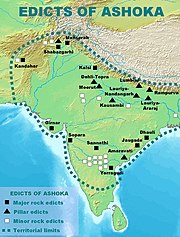
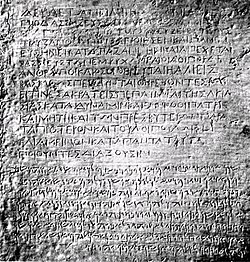
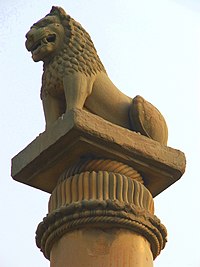



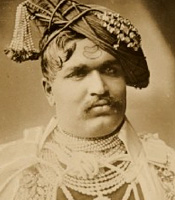
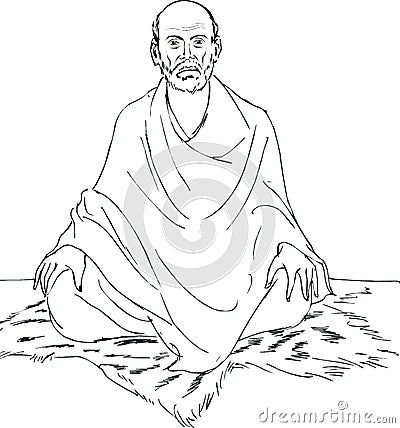
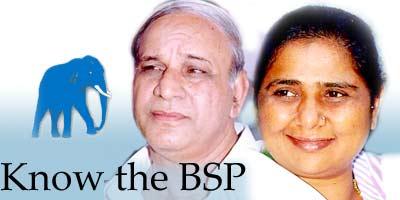
![[Bahujan Samaj Party Flag]](http://www.crwflags.com/fotw/images/i/in%7Dbsp.gif)





